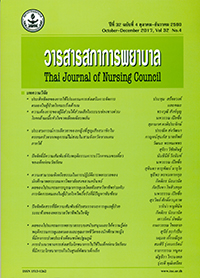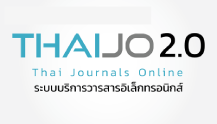Impact of an Educative-Supportive Nursing Programme on Self-Care Behaviour and Quality of Life of Female Students with Primary Dysmenorrhea
Keywords:
Self-care behaviors, Primary dysmenorrhea, Quality of life, Educative- Supportive nursing systemAbstract
Abstract:
Objective: To fnd out how an educative-supportive nursing programme contributed
to improving the self-care behaviour and quality of life of female students with primary
dysmenorrhea.
Design: Two-group experimental research with a pre-test and a post-test.
Methodology: The sample consisted of 60 female students aged between 18 and 22,
divided into a control group (30) and an experimental group (30). Only the experimental
group participated in an 8-week educative-supportive nursing programme. Data were
collected by means of a self-completed questionnaire, before the experiment, after the
experiment (week 8) and during the follow-up (week 12). The data were analysed
based on frequency, percentage, means, standard deviation, chi-square, independent
t-test and repeated measures ANOVA.
Results: After the experiment and during the follow-up period, the experimental
group’s scores on self-care behaviour and quality of life were signifcantly higher than
both their own pre-experiment scores and the control group’s (p-value < .05). The
experimental group also displayed a signifcantly lower degree of menstrual pain than
before the experiment, and than the control group did (p-value < .05).
Recommendations: It is recommended that the use of this educative-supportive
nursing programme, which was developed based on self-care theories, be promoted
amongst women with primary dysmenorrhea as a means of relieving their menstrual
pain and improving their quality of life during menstruation
References
1. Angsuwathana S. Dysmenorrhea. In: Kunathikom S,Banjapibal M, Rattanachaiyanont M & Therasakvichya S. eds. Gynecology.2nd ed. Bangkok: C.J. Printing, 2007:47-55. (In Thai).
2. Gambone JC. et al. Hacker and moore’s essentials of obstetrics and gynecology.5th ed. John F Kennedy Blvd.: Saunders Elsevier. 2010.
3. Rattanachaiyanont M. & Tanmahasamut P. eds. Disorders related to menstruation. 2nd ed. Bangkok: P. A. Living.
2006. (In Thai).
4. Mary S. Management of menstrual problems. Practice Nurse. 2012; 9: 34-41.
5. Iacovides H et al. Reduced quality of life when experiencing menstrual pain in women with primary
dysmenorrhea. Acta Obstet Gynecol Scand 2014; 93: 213–17.
6. Parai W, Aranyabhaga P. Prevalence of primary dysmenorrhea, self-management behavior and factors associated with primary dysmenorrhea among undergraduate student, Bangkok, Siam University, 2011. (In Thai).
7. Chongpensuklert Y, Kaewrudee S, Soontrapa S, Sakondhavut C. Dysmenorrhea in Thai Secondary School Students in KhonKaen, Thailand. Thai J Obstet Gynaecol 2008; 16: 47-53. (In Thai).
8. Rigon F et al. Menstrual pattern and menstrual disorders Among adolescents: an update of the Italian data.
Ital J Pediatr 2012; 38: 38
9. Jefout et al. Dysmenorrhea: Prevalence & Impact on Quality of Life among Young Adult Jordanian Females. J Pediatr Adolesc Gynecol 2015; 28: 173-85.
10. Hurt JK et al. The Johns Hopkins manual of gynecology and obstetrics. 4th Philadephia: Lippincott Williams
& Wilkins. 2011.
11. Orem DE. Nursing: Concepts of practice. 4th ed. St.louis London: Mosby Year Book. 1991.
12. Ju H, Jones M, Mishra GD. Smoking and trajectories of dysmenorrhea among young Australian women.
Br Med J 2016; 25: 195–202.
13. Fujiwara T, Nakata R.Skipping breakfast is associated with reproductive dysfunction in post-adolescent female college students. J Appet 2010; 55: 714-17.
14. Morrow C, Naumburg EH. Dysmenorrhea. Primary care Clinics in Offce Practice. J Fam Med Prim
Care 2009; 36: 19-32
15. Ortiz IM. Effect of a physiotherapy program in women with primary dysmenorrhea. Europ J Obstet Gynec Reprod Biol 2015: 24–9
16. Tungvichit S, Chotiwattanakulchai N, Markprum C. Effect of using supportive-educative nursing system
program combined with computer assisted instruction on breast self-examination among female undergraduate students. Bangkokthonburi University, 2012. (In Thai).
17. Kiatthitinun S. Effects of Supportive-Educative Nursing System on self-care behaviors and asthmatic control in school-age children. (Master of Nursing Science). Bangkok: Mahidol university; 2005. (in Thai).
18. Leaungsomnapa Y. The development of a program to change pain catastrophizing and pain intensity for primary dysmenorrhea in nursing students. (Doctor of Philosophy). Chon Buri: Burapha University;
2008. (In Thai).
19. Cohen J. Statistical Power Analysis for the Behavior Sciences. New Jersey: Hill sdalc. 1988.
20. Polit DF, Beck CT. Nursing Research: Generating and assessing evidence for nursing practice. 9th ed. New York Philadelphia: Lippincott. 2012.
21. Melzack R.The McGill Pain Questionniare: Major properties and scoring methods. Int J Pain 1975; 1:
277–99.
22. Chiou M, Wang HH, & Yang YH. Effect of systematic menstrual health education on dysmenorrhea female adolescent’s knowledge, attitudes and self-care behavior. Kaohsiung J Med Sci 2007; 23(4): 183-90.
23. Prakobthan S. Dysmenorrhea Pain management in adolescents at Bankhaotao School, Bangtoey Subdistrict, Muang District, Phangnga Province. (Master of Nursing Science). Nakhon Si Thammarat: Walailak University; 2009. (In Thai).
24. Jung HS, Lee J. The effectiveness of an educational intervention on proper analgesic use for dysmenorrhea.
Eur J Obstet Gynecol Reprod Biol 2013; 170: 480-6
25. Kannan P, Chapple CM, Miller D, Claydon LS, & Baxter DG. Menstrual pain and quality of life in women with primary dysmenorrhea: Rationale, design, and interventions of a randomized controlled trial of effects of a treadmill-based exercise intervention. Contem Clinl Trials Commun 2015; 42: 81-9.






